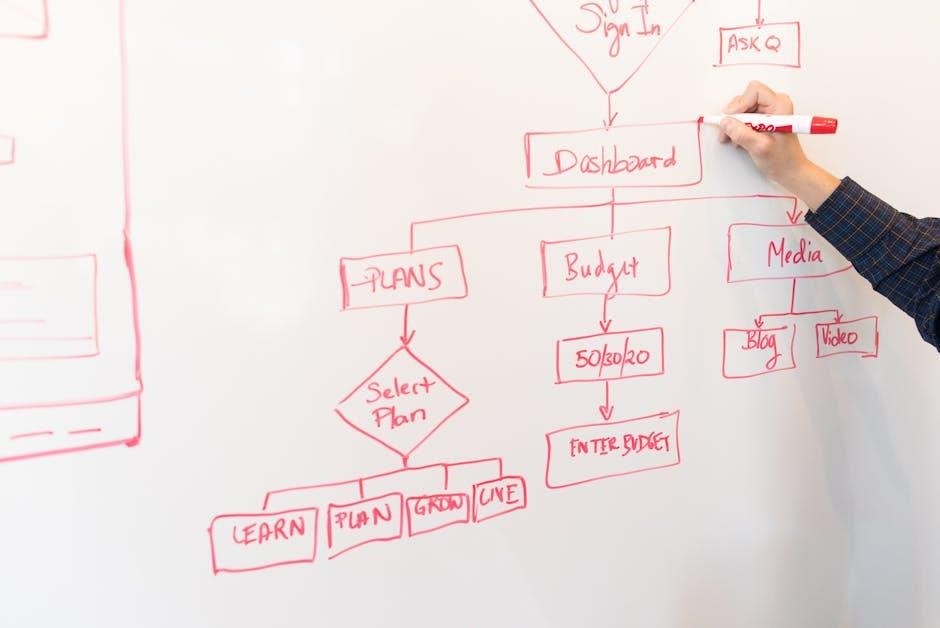Instructed delegates represent public interests in government through various models and theories of representation, focusing on constituents’ opinions and preferences always matter greatly.
Definition and Role
An instructed delegate is someone who directly channels the opinions and preferences of those they represent, acting as an agent of the voters who elected them. This role involves representing the public’s interests first, focusing on constituents’ opinions and preferences. The definition of an instructed delegate is closely tied to their role in governance, where they are expected to mirror the beliefs of the public. According to the responsibilities of delegates, they should regularly communicate with constituents, ensuring that their decisions align with the views of those they represent, ultimately serving as a representative of their constituents’ interests in government and legislative decision-making processes, with a focus on public interests.

Models of Representation
Generally, models of representation refer to ways elected leaders behave in democracy, including trustee, delegate, partisan, and politico models always existing.
Types of Models
There are several types of models of representation, including trustee, delegate, partisan, and politico models, each with distinct characteristics and roles.
These models are used to describe the ways in which elected leaders behave in a democracy, and how they interact with their constituents.
The trustee model, for example, involves elected officials making decisions based on their own judgment, while the delegate model involves elected officials making decisions based on the views of their constituents.
The partisan and politico models involve a combination of these approaches, with elected officials balancing their own judgment with the views of their constituents and their party affiliation, to represent public interests effectively always.

Trustee vs Instructed Delegate
Trustees and instructed delegates differ significantly in decision making processes always used.
Decision Making Process
The decision making process of an instructed delegate involves considering the opinions and preferences of their constituents, as well as the potential impact of their decisions on the community. This process typically includes gathering feedback from constituents, weighing the pros and cons of different options, and making a decision that aligns with the views of the majority. Instructed delegates may also consider the long-term effects of their decisions and strive to make choices that benefit the community as a whole. By prioritizing the needs and interests of their constituents, instructed delegates can build trust and ensure that their decision making process is transparent and accountable to the public, which is essential for effective representation.

Theories of Representation
Theories of representation include various models and concepts that explain how instructed delegates interact with constituents and make decisions on their behalf always.
Instructed-Delegate Theory
The instructed-delegate theory is a form of governance that prioritizes the public’s interests, with elected officials acting as agents of their constituents, making decisions based on their opinions and preferences, and regularly communicating with them to ensure their views are represented, this theory is essential in a democratic system, as it allows for the representation of the people’s interests, and holds elected officials accountable to their constituents, ensuring that their voices are heard and their needs are met, and this theory is a key aspect of democratic governance, with its focus on accountability and representation.
Responsibilities of Delegates
Delegates have duties to communicate and represent constituents’ interests accurately always and effectively.
Communication with Constituents
Effective communication is crucial for instructed delegates to understand constituents’ needs and opinions. Through regular meetings, surveys, and public forums, delegates can gather information and feedback from the community. This helps delegates to make informed decisions that reflect the interests of their constituents. By maintaining open lines of communication, delegates can build trust and ensure that they are truly representing the people who elected them. Regular communication also enables delegates to provide updates on their activities and explain the reasoning behind their decisions, fostering a sense of transparency and accountability in the representation process, which is essential for instructed delegates.

Characteristics of Instructed Delegate
Key characteristics include accountability and transparency always being present in their actions and decisions made daily.
Agent of the Voters
An instructed delegate acts as an agent of the voters, representing their interests and opinions in government, through regular communication and feedback mechanisms, ensuring that the delegate’s actions align with the will of the people, and that their decisions reflect the preferences and values of their constituents, ultimately serving as a direct channel for the public’s voice in the legislative process, and providing a means for citizens to hold their elected representatives accountable for their actions and policy decisions, which is essential for a functioning democracy.
Importance of Instructed Delegate
Instructed delegates ensure public interests are represented accurately always in government meetings and official discussions and decisions making processes every day.
Representation of Public Interests
Instructed delegates play a crucial role in representing public interests in government, focusing on constituents’ opinions and preferences to make informed decisions.
They act as agents of the voters, ensuring that the public’s voice is heard and their interests are protected, which is essential for a democratic system.
The instructed delegate model of representation emphasizes the importance of communication between elected officials and their constituents, allowing for a more accurate representation of public interests.
This model is based on the idea that elected officials should prioritize the needs and desires of their constituents, rather than their own personal beliefs or interests, to effectively represent public interests.
Instructed delegates effectively represent public interests and opinions in government always matter greatly every day.
Effective Representation
Effective representation is crucial in a democratic system, and instructed delegates play a significant role in this process. They are responsible for representing the interests of their constituents, and their actions have a direct impact on the lives of the people they serve. According to various models of representation, instructed delegates are expected to follow the instructions of their constituents, rather than making decisions based on their own judgment. This approach ensures that the voices of the people are heard and their concerns are addressed, leading to more effective representation and a more accountable government, which is essential for a healthy democracy.